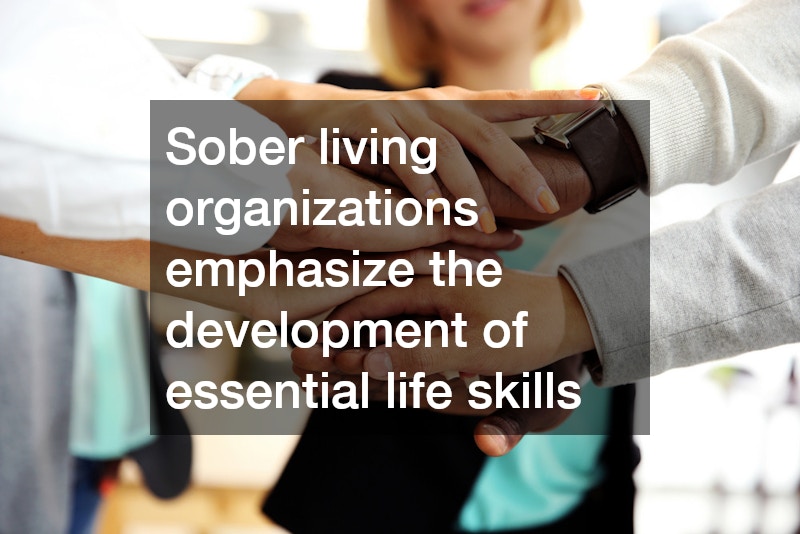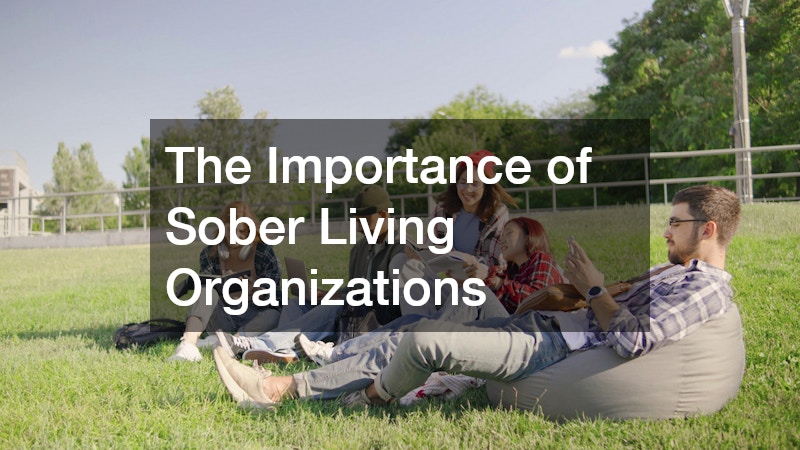
Sober living organizations play a pivotal role in supporting individuals undergoing recovery from substance abuse. These entities provide a structured environment that promotes responsible behavior and personal growth. The critical aspect of these organizations lies in their ability to create a community of support where individuals can hold each other accountable.
Given the complexity of recovery, the presence of structured environments and communal support systems is indispensable for a successful transition back into society.
How Do Sober Living Organizations Support Recovery?
Structured environments are central to sober living organizations, offering a predictable daily routine that aids recovery. Routine provides residents with stability, reducing the chaos often associated with substance abuse. This structure fosters habits that encourage sobriety, enabling individuals to gradually adjust to life without substances. The essential routines build a foundation of discipline and responsibility, crucial components of lifelong sobriety.
One of the most significant benefits of sober living organizations is the presence of peer support networks. These networks consist of individuals who share similar challenges and goals, fostering a sense of belonging. Through shared experiences, residents form strong bonds that offer emotional support, reducing feelings of isolation. Peer relationships are instrumental in encouraging residents to remain committed to their recovery paths.
Accountability is a fundamental tenet of sober living organizations, ensuring residents adhere to rules that facilitate recovery. These organizations implement accountability through regular check-ins, drug testing, and communal living expectations. Such measures help residents maintain focus and resist relapsing into old habits. By encouraging personal responsibility, sober living organizations empower individuals to take charge of their recovery journeys.
Sober living organizations offer access to a variety of resources, enhancing the recovery process. From counseling services to job training and educational opportunities, these resources are tailored to support personal development. They equip residents with the skills and knowledge necessary to rebuild their lives after addiction. Ensuring that these resources are readily available underscores the holistic approach these organizations take towards recovery.
What Are the Benefits of Sober Living Organizations?
A critical benefit of sober living homes is the safe and supportive environment they provide. These spaces are free from triggers and temptations, minimizing the risk of relapse. Residents are less likely to encounter external stressors that can derail their recovery efforts. This security allows individuals to focus entirely on their healing without the distractions of their previous environments.
Sober living organizations emphasize the development of essential life skills, which are key to long-term recovery. Residents are encouraged to cultivate responsibility, self-discipline, and time management among other skills. These skills not only contribute to personal growth but also prepare individuals for independent living post-recovery. By mastering these skills, residents can improve their life quality significantly once they reintegrate into the community.
These organizations facilitate a gradual transition from inpatient treatment to independent living. Unlike the sudden return to society after traditional rehabilitation, sober living allows for a more measured approach. This gradual transition significantly reduces the stress and anxiety associated with leaving a controlled environment. By the time residents are ready to leave sober living, they’re better equipped to handle the challenges of independent living.
Sober living programs have shown improved long-term sobriety rates among participants. Studies indicate that those who spend time in such living arrangements after inpatient treatment are more likely to maintain sobriety. This increased success rate is largely due to the comprehensive support networks and resources available. The structured environment fosters a conducive atmosphere for sustained recovery and personal growth.
How Do Sober Living Organizations Differ from Rehabilitation Centers?
The focus of sober living organizations differs significantly from that of rehabilitation centers. Whereas rehabilitation centers often concentrate on initial detox and therapy, sober living homes emphasize daily living and ongoing recovery. This shift in focus is crucial for individuals seeking to rebuild their lives post-treatment. Sober living homes aim to nurture long-term successful living beyond substance dependency.
The typical length of stay in sober living homes is often longer compared to rehabilitation centers. Rehabilitation centers generally have set durations for treatment programs, usually ranging from a few weeks to a few months. In contrast, sober living homes offer more flexible timelines, allowing individuals to stay for as long as they need to secure their recovery. This extended duration can provide additional support during critical transition phases.
The cost and accessibility of sober living organizations also vary from that of rehabilitation centers. Sober living homes often present a more affordable option compared to the higher costs associated with intensive rehab programs. Additionally, there are various financial assistance programs available to those in need. The accessibility provided by sober living homes makes them a viable option for many seeking sustained recovery support.
One notable difference between sober living homes and rehab centers is the level of medical supervision. Rehabilitation centers typically offer comprehensive medical and therapeutic care throughout the stay. However, sober living homes focus more on providing a supportive community environment with less direct medical oversight. This arrangement is ideal for individuals who have already completed initial treatment and are looking for continued support.
Sober living organizations are integral to the recovery and reintegration process for individuals overcoming substance dependency. By offering structured environments, robust support systems, and a focus on accountability, these organizations significantly enhance recovery outcomes. It is crucial for individuals to make informed choices when selecting a sober living organization to align with their personal recovery needs. As pivotal contributors to sustained sobriety, these organizations provide the necessary foundation for hope, healing, and successful reintegration into the community.

